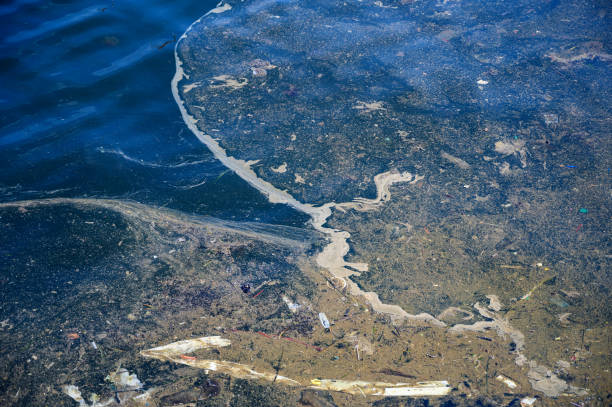India expected to enter global fisheries certification by 2025 end
In a major boost for India’s seafood export, the country is expected to enter the global fisheries certification by the end of 2025.
Oil spreads out rapidly across the water surface to form a thin layer that is called an oil slick.
Statesman News Service | New Delhi | October 11, 2022 11:38 pm

Effects of oil spills on marine ecosystem (Photo : iStock)
Oil spills in rivers, bays, and the oceans are caused by accidents involving tankers, barges, pipelines, refineries and storage facilities, while the oil is being transported. Oil spills can have a serious economic impact on coastal activities and on those who exploit the resources of the sea. In most cases such damage is temporary and is caused primarily by the physical properties of oil creating hazardous conditions.
Oil spreads out rapidly across the water surface to form a thin layer that is called an oil slick. As the spreading process continues the layer becomes thinner and thinner finally becoming a very thin layer called a sheen which often looks like a rainbow.
Advertisement
Effects of oil spills
Advertisement
Depending on the circumstances, oil spill can be very harmful to marine birds and mammals and can also harm fish and shellfish. Besides this, they also have a bad impact on coastal activities.
Biological effects of oil spill
The effects of oil on marine life are caused by either the physical nature of the oil or by its chemical compounds that have toxic effects and accumulation leads to tainting. Marine life may also be affected by cleanup operations or indirectly through physical damage to the habitat in which the plants and animals live.
Oil spills endanger animals
Oil spills sometimes are the reason for animals becoming endangered. Sea otters, different sea birds and killer whales are some of the animals facing danger due to oil spill.
Effects of specific marine habitats
In coastal areas some marine mammals and reptiles such as turtles may be particularly vulnerable to adverse effects from oil contamination because of their need for surface to breathe and breed. Adult fish living near the shore and juveniles in the shallow water nursery grounds may be at greater risk at exposure from the oil spillage. Marine animals in shallow water such as oysters, muscles and clamps that routinely filter large volumes of seawater to extract food are more prone to danger.
Effect on fisheries and Marine culture
Oil spill can directly damage the boats and gear used for catching or cultivating marine species. Floating equipment and fixed traps extending above the sea surface are more likely to become contaminated by floating oil whereas submerged nets, pots, lines and bottom trawls are usually well protected, provided they are not lifted through an oil sea surface. Experience from major oil spills have shown that the possibility of long-term effect on wild fish stocks is remote because the normal over production of eggs provides a reservoir to compensate for any losses.
Advertisement
In a major boost for India’s seafood export, the country is expected to enter the global fisheries certification by the end of 2025.
Eligible stakeholders mainly fishers, fish farmers, vendors, processors and microenterprises can register themselves on the National Fisheries Digital Platform at these camps so that they can avail the benefits under PMMKSSY which has been launched with an outlay of Rs 6,000 crore.
The 14th Asian Fisheries and Aquaculture Forum (14 AFAF), with the theme ‘Greening the Blue Growth in Asia-Pacific’ is to be organised in New Delhi from February 12-14.The Asian Fisheries and Aquaculture Forum (AFAF) is a triennial event of the Asian Fisheries Society with its headquarters in Kuala Lumpur, Malaysia.
Advertisement
